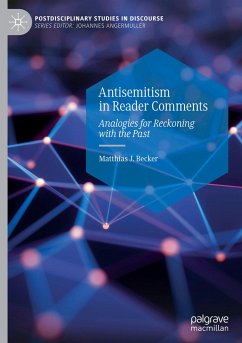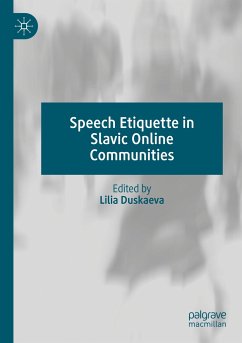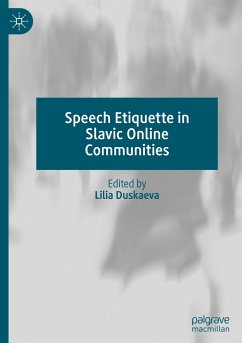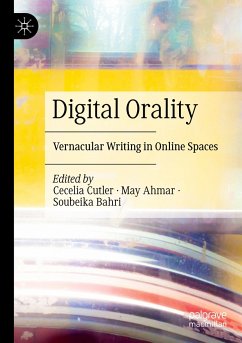
Antisemitism in Reader Comments
Analogies for Reckoning with the Past
Versandkostenfrei!
Versandfertig in 6-10 Tagen
76,99 €
inkl. MwSt.
Weitere Ausgaben:

PAYBACK Punkte
38 °P sammeln!
This book examines the most frequent form of Jew-hatred: Israel-related antisemitism. After defining this hate ideology in its various manifestations and the role the internet plays in it, the author explores the question of how Israel-related antisemitism is communicated and understood through the language used by readers in below-the-line comments. Drawing on a corpus of over 6,000 comments from traditionally left-wing news outlets The Guardian and Die Zeit, the author examines both implicit and explicit comparisons made between modern-day Israel and both colonial Britain and Nazi Germany. H...
This book examines the most frequent form of Jew-hatred: Israel-related antisemitism. After defining this hate ideology in its various manifestations and the role the internet plays in it, the author explores the question of how Israel-related antisemitism is communicated and understood through the language used by readers in below-the-line comments. Drawing on a corpus of over 6,000 comments from traditionally left-wing news outlets The Guardian and Die Zeit, the author examines both implicit and explicit comparisons made between modern-day Israel and both colonial Britain and Nazi Germany. His analyses are placed within the context of resurgent neo-nationalism in both countries, and it is argued that these instances of antisemitism perform a multi-faceted role in absolving guilt, re-writing history, and reinforcing in-group status. This book will be of interest not only to linguistics scholars, but also to academics in fields such as internet studies, Jewish studies, hate speech and antisemitism.














